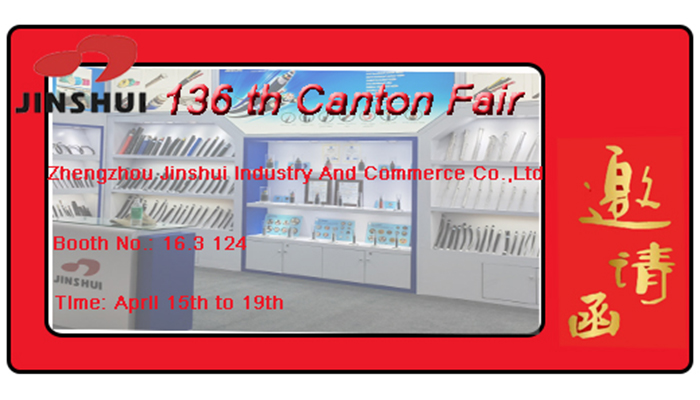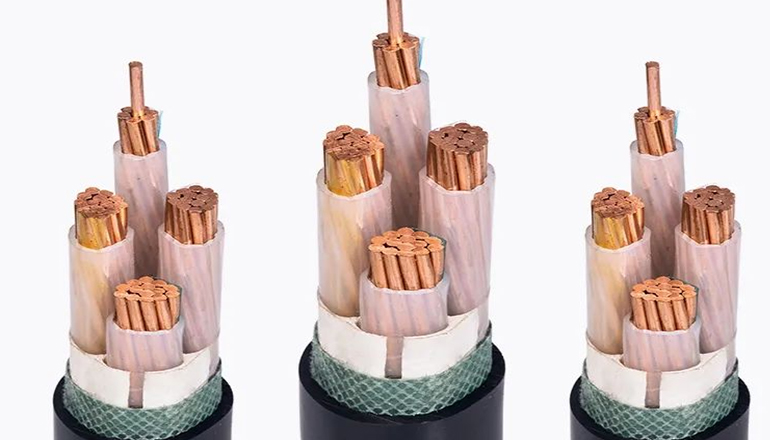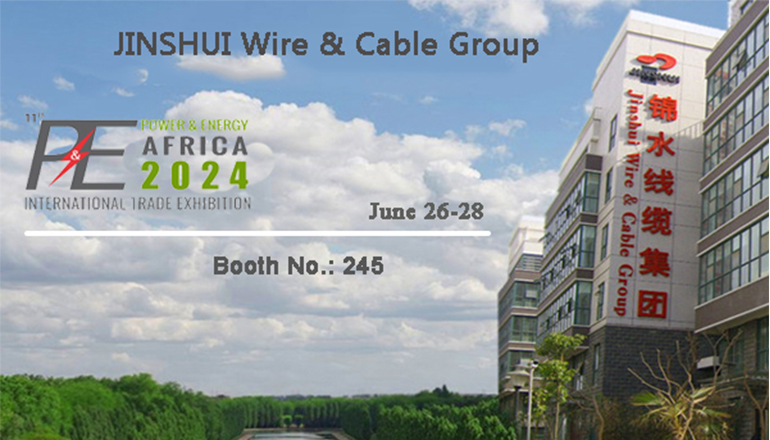- Offices Time:24 Hours Online
- Email:[email protected]
- WhatsApp:+8618339938759
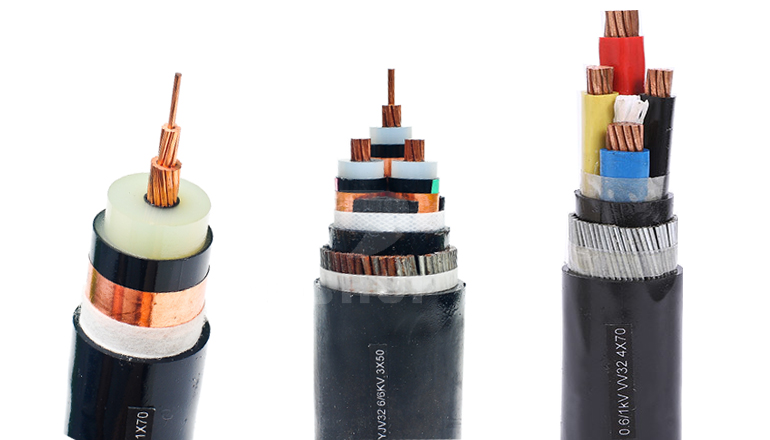
Posted on July 27, 2023
What are the advantages of YJV power cables?
Cables play a major role as an integral part of the transmission and distribution of electricity. Among various power cable types, copper core cable YJV is a commonly used power cable with many advantages. In addition, there are cable types such as YJY and VV, which are also different in construction and use. This blog post will discuss both advantages and differences.
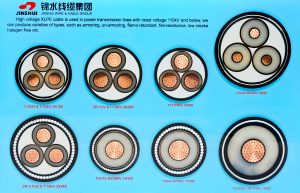
Copper core cable YJV has the following advantages
Excellent electrical conductivity
Copper core cables use high-purity copper conductors, which have good electrical conductivity, which can ensure stable and efficient transmission of electric energy and reduce energy consumption.
Stable electrical performance
YJV cable adopts high-purity copper core, which has stable electrical performance and high transmission efficiency.
Excellent flame retardant performance
YJV cables have good flame retardant performance, which can effectively avoid safety accidents such as fire and wire short circuit, and ensure the safe operation of the power system.
Strong corrosion resistance
The sheath material of YJV power cable is made of polyvinyl chloride, which has good corrosion resistance and can resist the erosion of chemical substances and humidity environment on the cable.
Easy installation
YJV cable is soft, easy to bend, and easy to install.
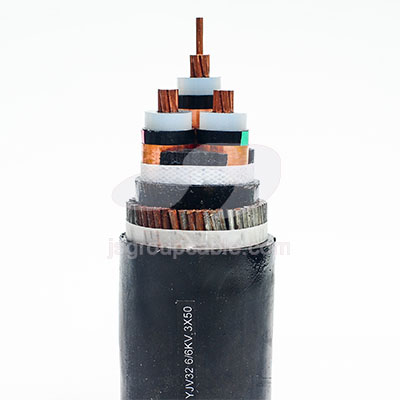
What are the differences between copper core cables YJV and YJY, VV cables?
Differences in names:
YJV full name: Copper core XLPE insulated PVC sheathed power cable
YJY full name: copper core XLPE insulated polyethylene sheathed power cable
VV full name: Copper core PVC insulated PVC sheathed power cable
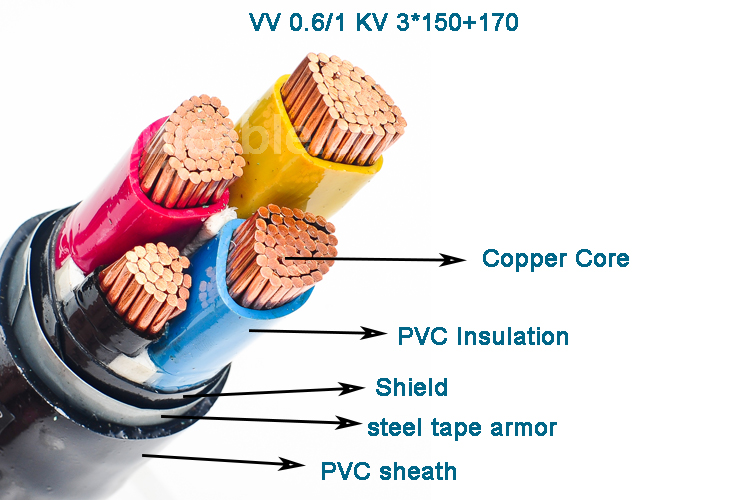
It can be seen from the name comparison that the outer sheath material of YJV power cable and VV cable is different from that of YJY cable. The outer sheath material of YJY cable is polyethylene (PE), and the outer sheath material of YJV cable and VV cable is polyvinyl chloride (PVC). ). The insulation material of YJY cable and YJV cable is different from that of VV cable. The insulation layer of YJY cable and YJV cable is polyethylene (PE), and the insulation material of VV cable is polyvinyl chloride (PVC).
Applicable scope difference:
Because YJV cables are made of polyvinyl chloride (PVC) as the outer sheath material, they will produce harmful gases when burned, so they are not suitable for populated places or closed places. YJV cables are mainly used in urban underground power grids, export lines of power stations, etc. YJY cables are suitable for subway underground stations, large shopping malls, etc. VV cables are suitable for industrial places that do not require high voltage levels and temperatures.
Price comparison:
The price cost of YJY cable sheath is slightly higher than that of YJV cable sheath, so the price of YJY cable with the same specification is higher than that of YJV cable. The performance of VV cables is lower than that of YJV cables, so the price of many other brands of VV cables is slightly lower than that of YJV cables, but in actual production, the cost of small-scale production of VV cables is actually higher than that of mass-produced YJV cables Cable, so the price of VV cable and YJV cable of Qifan Cable is basically the same.
Use temperature difference:
The operating temperature of YJY cables and YJV cable conductors cannot exceed 90 degrees, and the operating temperature of VV cable conductors cannot exceed 70 degrees; the operating ambient temperature of YJV cables and VV cables is -20°C—+45°C, and the operating ambient temperature of YJY is -40°C— +45°C.
The difference in voltage:
VV cables are low-voltage cables and can only be used in low-voltage environments, while YJY cables and YJV cables have both low-voltage and medium-high voltages, so they have a wider scope of application.
Through the above content analysis, we can know that it is recommended to use YJV cable when it is only used for power cable transmission. It is recommended to choose YJY cables in densely populated places, which are more environmentally friendly and affordable. If the budget is low, VV cables can also be used in industrial places that do not require high voltage and ambient temperature. However, Jinshui Cable Group believes that YJV cables will gradually replace VV cables in the future. After all, the performance of YJV cables is higher than that of VV cables in all aspects of the price difference.
Post categories
Most Popular Posts
-
The 136th Canton Fair welcomes you to participate!
October 12, 2024 -
High temperature cable introduction
July 26, 2024 -
Kenya Power and Energy Exhibition 2024
June 11, 2024 -
Introduction of rubber sheathed cable
June 5, 2024


